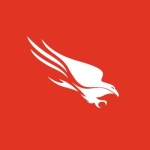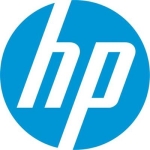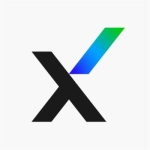What is our primary use case?
Our primary use cases for Fortinet FortiEDR are cash registers and endpoint, and point of sales.
The reason we originally started with FortiClient with one of our clients in the first place was that they were able to have legacy cash registers, a really old technology, which we had to get to run in a small resource space, and FortiClient, which was the predecessor, allowed us to literally pick and choose what features we wanted in the client and reduce its size, which you couldn't do with any other types of clients that were out there. That's how we started with that.
It is mostly on premise and any cloud services that we use are directly from Fortinet themselves. I would call that public cloud. We do run some of the customer's environment in private cloud, basically co-location. This has provided the services back to their dataset. I am talking about Fortinet's cloud for the public. For the private stuff it was basically out at Q9, which is the co-location provider.
How has it helped my organization?
Fortinet FortiEDR has the ability to customize the footprint of the client or the agents on the device and on the endpoint.
What is most valuable?
The features that I have found most valuable are the ability to customize it and to reduce its size. It lets you run in a very small window in terms of memory and resources on legacy cash registers. The customer has literally about 800 cash registers. That was the use case for Fortinet FortiEDR - to get that down into a tiny space. The only way to do that was to use this product because it had that ability to unbundle services that were a surplus.
What needs improvement?
In terms of what could be improved, I would say everything with Fortinet having to do with their cloud services. They need to invest more in their internal infrastructure that they are running in the cloud. One of the things I find with their cloud environment compared to others' is that they go cheap on the equipment. So it causes some performance degradation.
A classic example of that would be products like FortiMail where you're basically acting as a mail relay. So say you're on a support call and I'm sending you a mail with document that you expect to come to you immediately, or within 30 - 60 seconds, could take up to 45 minutes because of the load on the cloud services. This can result in trouble tickets and other customer side issue.
In the next release I would like to see more investment in their cloud services. Additionally, they definitely need better integration into their FortiSIEM and FortiSOAR solutions.
They should continue to improve that and possibly include a managed threat hunting feature, an MDR solution.
Buyer's Guide
Fortinet FortiEDR
July 2025
Learn what your peers think about Fortinet FortiEDR. Get advice and tips from experienced pros sharing their opinions. Updated: July 2025.
861,170 professionals have used our research since 2012.
For how long have I used the solution?
I'm a Fortinet Gold Reseller but primarily we're a consulting company, not a product company. We tend to be agnostic with the one caveat being Fortinet, and only because I was the first guy in Canada to get certified in that, and also the first guy to sell it. There is a personal preference there. But I'm looking deeper into more enterprise security solutions that are SASE and endpoints and EDR, XDR, MDR, all that kind of stuff.
We've done work primarily with FortiGate deployments, but we've also done multiple SD-WAN projects and we've worked with FortiEDR, which is similar to their version of EDR. We've worked with FortiClient before that. As far as FortiCloud goes, we've worked with FortiMail in the cloud, we've worked with FortiManager in the cloud, but we haven't gone into CASB stuff yet.
We also do some Fortinet managed services in our customer base. So I have worked with Fortinet since 2004, 2005.
Fortinet FortiEDR has only been out for a couple of years. We've been working with it for a couple of months, primarily migrating a customer from FortiClient to FortiEDR.
We haven't done full scale deployments of FortiEDR yet, it's still fairly new.
What do I think about the stability of the solution?
In terms of stability, EDR is a pretty decent solution, but it's not best of breed. One of the challenges with Fortinet, and all of these vendors, is that they are doing acquisitions and doing things to retrofit into their environment, but there's a dependency on legacy or other features that Fortinet has, and Prisma from Palo Alto has. They have their own products, which are how their system is designed. It's really a suite of products. Fortinet is now FortiFabric, with Palo Alto it's Prisma, Prisma Cloud and XSOAR and all that stuff.
All these types of companies are not as flexible. I think in the future, people are not going to be interested in having these huge complex suites of products in order to take advantage of integration.
If you look at a true SASE solution, for example Zscaler, it's a product on its own. And it typically integrates with industry best of breed products first. So Zscaler would work with CrowdStrike or Microsoft Defender before it's going to work with an integrated solution like Palo Alto or Fortinet.
I'm finding more and more that these companies, Palo Alto, Fortinet, Check Point, Juniper, are all doing well right now. But I think in the next year to two, you're going to see a transition away from that type of technology.
It is actually one of Fortinet's big selling points that they're not maintenance heavy and they've got their gang leveraging all the other components. It actually updates itself automatically if you choose. And it has the ability, using FortiManager and other products, where you can push out policies very easily across multiple appliances, although that requires proper design and architecture from the beginning to make sure that you've got cookie cutter configurations across your enterprise.
What do I think about the scalability of the solution?
Scalability is Fortinet's sweet spot, even though they're heavily focused trying to sell into enterprise, their sweet spot is still mid-size, SMB, customers.
Those products work well in an environment which is below 3000 users. It also works well in in terms of large enterprises, like a bank.
I don't see EDR really expanding. Fortinet Firewalls is another story. Firewalls can scale up to very large enterprises, including Telcos, but I don't see the EDR product deployed in those environments.
How are customer service and support?
Their support is getting better.
Right now it is not that good. Fortinet was never big on technical support. I think they went by the theory that if it was hard to write, it should be hard to understand. Their technical support is getting better, but if you compare it to Cisco, it's not as good and it never was. It is one of their weak points. Its response time is not bad, but the attitude of the people on the phone is. It's the amount of information they ask for to do an RMA, for example. They can be very challenging to work for. That's an opportunity for managed security providers, because if you confront them, and take it away from the customer, it makes the customer's experience much better. So a bad support center is good for an MSSP.
How was the initial setup?
The initial setup is complex compared to stuff like CrowdStrike or other products where you can just sign up and download and it, and it works.
It's a little bit more complex with FortiEDR because you're dealing with the setup and management of it, whereas in products like CrowdStrike, it's pretty automatic and it's just a question of a radio button to turn on or turn off additional features that you may want.
For example, going EDR to XDR or going EDR to MDR in CrowdStrike, you can do that in Fortinet but you have to implement FortiSOAR and all this other stuff.
Initially the setup took us a while, simply because we had to mess around with the client. We are talking weeks because we had to test and make sure that there were no performance issues and no interruptions in the flow of data, etc...
That took us probably five, six weeks to get up in a POC type environment. Once we got that, it's cookie cutter. You have an image that you deploy that already has that compiled in it, and it works pretty easily.
What's my experience with pricing, setup cost, and licensing?
Fortinet FortiEDR is priced pretty competitively if you compare it to other companies that are in the same boat, like Palo Alto, who have similar product suites. It is reasonable. In the industry, they call Fortinet the Chevy of Perimeter Security and Palo Alto the Cadillac. I think that's undeserved. I think Fortinet is actually, in the long run, a better product, but it has that reputation because of their pricing. Palo Alto, right off the bat, charged a much higher premium, which created the illusion that you're getting a better product. Palo Alto products are brutally expensive.
But that's the way Palo Alto works and it works for them. Although, I've heard rumors that they're changing their channel model where they're going after enterprise customers directly, rather than forcing it through the channel. Fortinet is a 100% channel, Palo Alto is not. And that's affecting them. If you look at stock prices and earnings, Fortinet is actually doing better.
What other advice do I have?
With any of these products, you need to step back and look at where the wave of technology is going in the security posture. I think that you need to step back and say, "Here's my current situation, what's the best solution two to three years from now?" If you look at that, I don't see Fortinet or Palo Alto or any of those traditional product vendors being the future state.
These companies are like system integrators. A lot of system integrators went out of business mostly because they couldn't make the paradigm shift from a product led business to a service led business. I see the same type of thing happening in the traditional Perimeter Security companies, that are not designed from the ground up. They make an acquisition of a product and they try to integrate it into their business model, and to leverage all their other products in a suite. That's not the way the industry is going.
On a scale of one to ten, I would rate Fortinet FortiEDR somewhere around a six.
It goes back to what I said that I don't think it's got a huge future. If you compare it to CrowdStrike or those type of products, it is very similar to Palo Alto's Cortex, they didn't even come out with an an EDR solution, they went directly to an XDR solution. What is XDR penetration? About 2% of the market right now. It's just not a fit to the future. That's why I give it a six.
Which deployment model are you using for this solution?
Public Cloud
Disclosure: My company has a business relationship with this vendor other than being a customer.

















